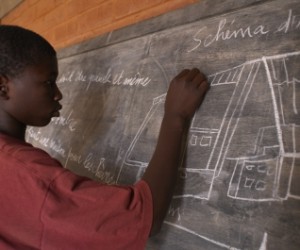The journey toward social, economic and environmental communal liberation is a global responsibility and one in which everyone can play a role. Pragma in partnership with ERWAT and other social partners have launched the Unite for our Future initiative, which will starts today in Tembisa, Ekurhuleni.
“In 2011, Pragma together with our social partners have decided to deepen its commitment to the community and environment. We believe that economic prosperity relies on an inclusive, vital, educated and healthy communal population. We want to be involved in an initiative which is part of the strategic environment, creating more sustainable development which contributes to real social development and economic growth.
Our mission is to focus on contributing in the development of sustainable communities. This means that we’ve decided to do away with the glitz and glamour associated with end-of-year parties, but will roll-up our sleeves to make a difference in our communities. We’ve identified the Phomolong High School in Tembisa, as a suitable place to start." says Billy Wilson, Divisional Academy Manager.
Pragma has researched several potential beneficiaries within the Ekurhuleni region and have selected a high school situated in Tembisa, the Phomolong Secondary School. “We met with Principal Thoka in July this year. We were humbled by the fact that with 1 972 learners, they were able to produce a 83% pass rate and are ranked amongst the Top 10 best performing schools in their district. Thoka and his staff have dedicated themselves to doing their bit and then some for future generations, in spite of numerous challenges such as a lack of functional and/or appropriate facilities, a lack of funds, a lack of resources and so on. They’ve accomplished so much which any school would be proud of.”
In order to accommodate the learners, many of the students attend classes in containers, which have been converted in to small classrooms. The school does not deny a single student access to education, not even kids who cannot read or write. Instead they have gone above and beyond the call of duty and enlisted the help of a retired teacher who offers his services to teach those who can’t read or write, basic literacy for free. They are the only school taking students from 3 primary feeder schools.
Wilson continues: “Challenges faced by the school include inadequate sustainable water supply, inadequate sanitary and lavatory facilities, no energy saving initiatives, no fire fighting equipment, inadequate kitchen facilities, inadequate assembly facilities, inadequate sports fields, inadequate irrigation for grounds, inadequate classrooms as well as inadequate heating. We’ve decided to assist with these challenges and do as much as we can with the help of our partners and suppliers. We’ll be engaging in some very necessary maintenance on the day but one of our first key projects will be to install a grey water filtration system as well as a bore hole with the essential assistance and expertise of our strategic partner on this project ERWAT”.
This is a shout out to all corporates to pool resources, experience, time and wallets and join Pragma’s efforts to ensure a stronger impact and lend a helping hand to this school that is playing a huge part in ensuring the future of our country is a generation, equipped and prepared.” Wilson adds.
The school has even constructed a veggie garden that grows spinach, cabbage, onions and herbs. The garden supplies some very much needed vegetables to the learners at school during lunch times. It‘s also a source of nutrition for the kids over weekends as for many of these kids this is the only food they will get. They’ve also dedicated some land for a second veggie garden, which serves the community. The school’s dedicated gardener assists with maintaining the community garden as and when he is able to.
An environmental committee, driven by the students who have taken it upon themselves to teach the rest of the students as well as the community about growing their own food, has been set up.
“They also organise several cleanup projects aimed at cleaning up the litter in the community. This is just some of the amazing things this school has achieved in the face of poverty and a lack on suitable facilities and resources.
Phomolong Secondary School has taken the responsibility on their own shoulders with an extremely low budget available to them, to better the school’s facilities, and to continue their fight against poverty through education by building a breakaway building where the grade 12 students are able to write exams without any disturbance from the rest of the school. This building will also double up as a facility where teachers and parents are able to meet during parent’s evenings as well as teachers’ meetings,” concludes Wilson.






